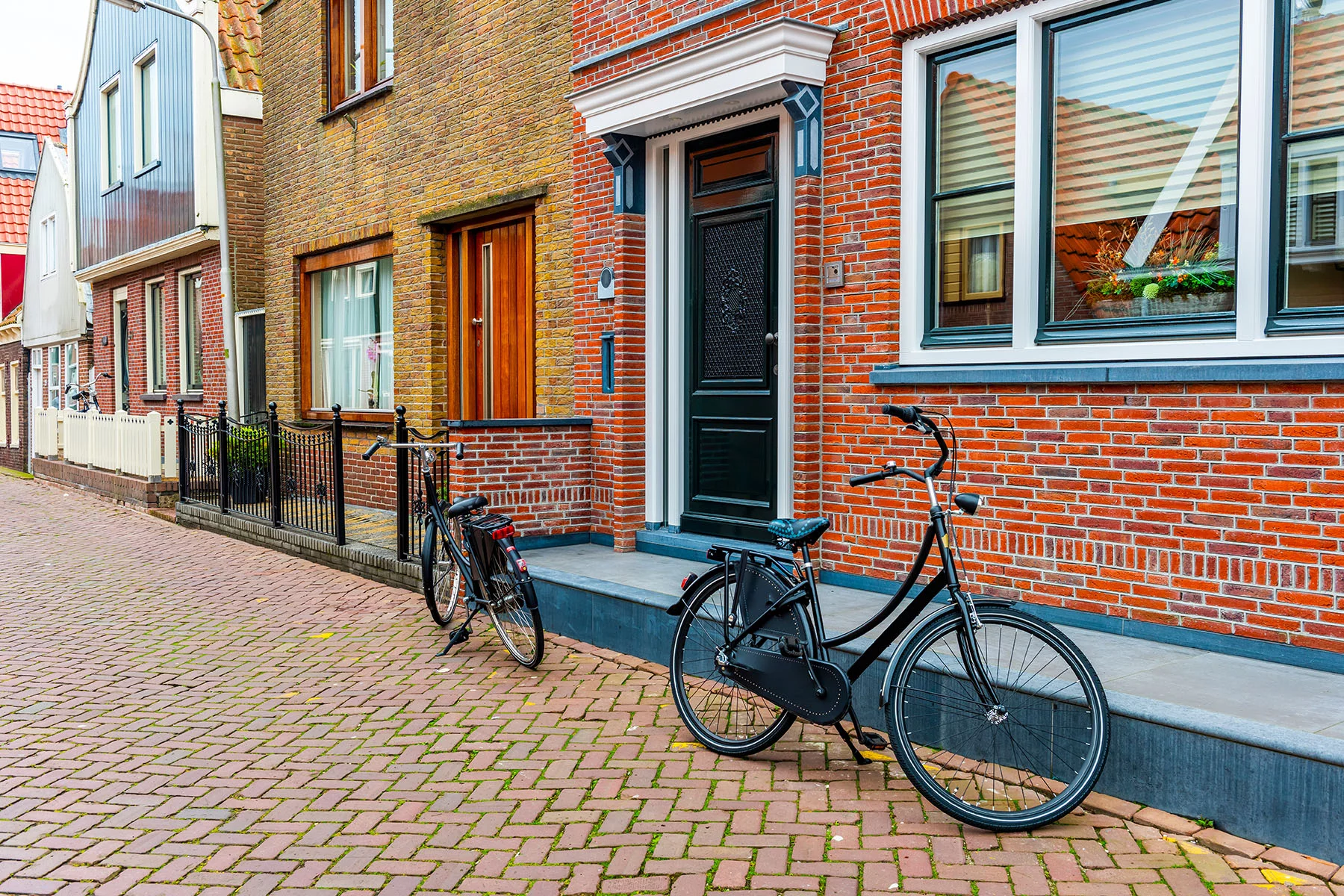Dutch rental law doesn’t just cover basic things like rent payments. It also protects tenants from discrimination, guarantees proper living standards, and ensures your privacy. In fact, a landlord can’t legally evict you without a court order, even if you’re behind on rent.
From rental contracts to security deposits, this article breaks down everything you need to know about tenant rights in the Netherlands – and how to protect them. With the right knowledge, you can navigate the Dutch housing market with confidence and avoid common pitfalls.
Let’s dive in:
- Your rights as a tenant in the Netherlands
- What should a lease contract contain in the Netherlands?
- Terms and notice periods: types of Dutch rental contracts
- Dutch regulations on rent and service fees
- Security deposits for rentals in the Netherlands
- Eviction rules in the Netherlands
- How to resolve a Dutch rental dispute?
- Dutch landlord rights and tenant obligations
- Practical tips for tenants and renters
- Useful resources
Use Wise for moving money abroad
Wise offers expatriate-friendly financial services including international money transfers at mid-market exchange rates with transparent, low fees, helping you save money when sending funds to family or managing finances across borders. Their multi-currency account allows you to hold, convert, and spend money in multiple currencies.
Your rights as a tenant in the Netherlands
Rental law in the Netherlands is covered by the Dutch Civil Code (Burgerlijk Wetboek) and various renting acts. These rights are designed to protect you and the property owner throughout your tenancy, from moving in to moving out.

Dutch rental law covers key areas such as rent price, maintenance responsibilities, notice periods, and evictions. For example, tenants in the Netherlands have the right to:
- Protection against discrimination – landlords cannot reject a tenant based on nationality, race, religion, or other protected characteristics. So, if you’re not getting a home because you’re an expat, the landlord or agency is breaking the law.
- Capped rent price increases – property owners cannot just double your rent. Instead, they must adhere to the terms stated in the lease contract and government-imposed annual limits.
- Protection against unlawful eviction – your landlord must have a valid legal reason to evict you (e.g., non-payment or illegal activities). Even then, there is a notice period and an opportunity to fight it in court.
- Proper maintenance and structural repairs – the property owner must maintain the house properly and take care of major repairs (e.g., plumbing, heating, and electricity issues).
- Privacy in their own homes – your landlord cannot enter your home without your consent, except in emergencies. They also can’t do a surprise visit; they must give you at least one day’s notice.
- Their security deposit when they leave – the property owner must return your security deposit unless there are unsettled bills (which they need to prove and substantiate).
While these rights feel very fair, it doesn’t take a lot to create a rental dispute. In the case of legal proceedings, getting assistance from legal aid services – such as Legal-Expat – is certainly recommended.
What should a lease contract contain in the Netherlands?
Dutch rental law requires lease agreements to be written contracts, signed by both parties. It should contain all the points that you and the landlord agree to, such as:
- Your name and that of the property owner
- Amount of basic rent and service costs
- Amount of the security deposit
- Address and description of the property (e.g., number of rooms, bathroom, garden)
- Contents of the property (e.g., furnished or unfurnished)
- Start date of the lease contract
- Date that the rent is due
- Date that the rent can increase
- How the rent is paid (including bank account details)
- Point system of the property (more on that below)
When you’re a student renting a single room, your rental agreement may also contain other information. For example, the usage and division of any shared spaces, how those are kept clean, whether or not you can have pets, and the like.

In addition to the contract, the property owner or rental agency may provide a document with general terms and conditions. In apartments, you may also get a set of regulations from the residents’ association.

Writer and local expert
Laura van der Most
Insider tip
The landlord has no right to dictate who you invite over – as long as you don’t discreetly move in your partner or sublet the place via AirBnB. Rental contracts that stipulate “no overnight guests” have zero legal basis.
Terms and notice periods: types of Dutch rental contracts
Lease contracts in the Netherlands can either be fixed-term or permanent, with most situations requiring the latter. This is a relatively new stipulation under the Fixed Rental Contracts Act (Wet vaste huurcontracten), which went into force on 1 July 2024.
Fixed-term rental agreements
Fixed-term contracts are used for temporary rentals; for example, if the property owner lives abroad and you are renting the home in the meantime. This lease has a maximum duration of two years. However, if you signed your rental agreement before 1 July 2024, the maximum leasing period is two years for independent homes and five years for co-living housing.
While fixed-term contracts have a set end date, the lease will only truly cease if the landlord informs you (in writing) in advance. This notice period is one month before the end of the contract. You can also break the lease early; the tenant’s notice period must be stated in the rental agreement.
If you were not notified (in time or at all), the contact will automatically change into a permanent one.
Permanent lease agreements
Perhaps we’re stating the obvious, but permanent contracts have no fixed end date. Instead, they are rolling agreements that don’t need to be renewed. From 1 July 2024 onward, most tenants in the Netherlands have the right to a permanent lease contract.

Permanent agreements make it harder for your landlord to evict you from your home (more on that below). If there is a valid reason, however, the property owner can terminate the contract by giving sufficient notice, depending on how long you’ve lived there:
- 3 months if you rented it less than 1 year
- 4 months if you rented it more than 1 year
- 5 months if you rented it more than 2 years
- 6 months if you rented it more than 3 years
Tenants can also break the lease voluntarily; your notice period must be stated in the lease contract.
Dutch regulations on rent and service fees
Dutch rent prices – especially in the social housing sector – are regulated under the housing valuation system (woningwaarderingsstelsel – wws). This system assigns points to a property based on factors such as size, energy label, and property value (WOZ-waarde). The total score determines the maximum legal rent for the property.
Huurfix
Tired of paying outrageously high rent every month? Huurfix’s team of legal experts can work to negotiate a lower monthly rent for tenants in the Netherlands. They work on a no-cure, no-pay basis, so there’s no fee unless they’re successful. Visit their website now and find out if you’re eligible for a reduction.
This system is also relatively new, coming into force on 1 July 2024. It’s meant to protect tenants from exorbitant rent prices, especially in larger cities such as Amsterdam, Rotterdam, The Hague, and Utrecht.
You can calculate the number of points for your home – and thus, the maximum legal rent – on the website of the Rental Tribunal (Huurcommissie).
Rent increases in the Netherlands
Property owners or leasing agencies may raise the basic rent (kale huur) every 12 months. How much they can increase it by depends on the housing category.

Properties in the Netherlands are divided into three broad brackets, as determined by the so-called liberalization threshold (liberalisatiegrens):
- Social housing (sociale huurwoning) – the basic rent does not exceed the liberalization threshold. In 2024, this was €879.66 per month. In 2025, it is €900.07 per month.
- Middle rental properties (middenhuurwoning) – if you signed in or before 2024, the basic rent amounts to €879.66–1,157.96 per month. If you signed in 2025, the basic rent amounts to €900.07–1,184.83 per month. It’s also a middle rental property if your home gets 144–186 points.
- Free sector rentals (vrijesectorhuurwoning) – if you signed in or before 2024, the basic rent is higher than €1,157.96 per month. If you signed in 2025, the basic rent is higher than €1,184.82 per month. It’s also a free sector rental if your home receives 187 points or more.
- If you entered into the lease before 1 July 2024, your basic rent must be higher than the historic liberalization threshold of the year you signed the contract (source: in Dutch).
When you live in social housing, your rent may increase by 5% in 2025 when the basic rent is €350 or more per month. If you pay less than €350 per month in basic rent (where? how?), your landlord may raise the rent by €25 max.
For middle rental properties, rent may increase by 7.7% max (2025), even if the lease contract states a higher percentage. However, if the property owner renovates your rental (e.g., adding double glass), they can increase the rent by more than 7.7%.
Rent in the free sector may rise by 4.1% (2025). Again, if your landlord renovates your rental property, they can increase the rent by more than 4.1%.
In all cases, the property owner must give you at least two months’ notice and adhere to the Affordable Rent Act (Wet Betaalbare huur), which went into force on 1 July 2024.
There are also tenancy lawyers, like Huurfix, who can help guarantee your right to a reasonable monthly rent if you believe you’re paying too much.
Service fees for your Dutch apartment
In addition to your monthly rent, you may be required to pay service fees (servicekosten). These costs cover shared expenses and services provided by the property owner, such as appliances, cleaning services, installations (e.g., TV and internet), and utilities.

Service fees must be reasonable, however. For example, costs for the use of furniture and furnishings may only be a maximum of 20% of the sales value per year. Likewise, administration costs may only be 5% of the total fees.
Your lease contract must contain a detailed overview of the amenity fees. Besides that, the landlord is required to provide an annual breakdown of the actual costs incurred. If you’ve paid too much in the past year, you must get a refund. Conversely, if the fees exceed the initial estimate, the landlord can ask for additional payment.
Service costs can change throughout the year, for example, because a certain conflict affects European gas prices. Property owners may adjust the fees multiple times throughout the year on top of the annual rent increase.
Of course, the amenity package can also change throughout your tenancy. For instance, your communal appliances may suddenly include a dryer. The landlord may only introduce these changes if 70% of the tenants agree. In other words, if you share the same service package with 10 others and eight don’t want to remove a utility and maybe lower the monthly costs, you’re stuck with the higher service fees.
Security deposits for rentals in the Netherlands
A security deposit (waarborgsom or, more commonly, borg) is a standard requirement when renting a property in the Netherlands.
This sum of money is paid at the start of a lease contract and serves as financial security to cover possible damages, service costs, unpaid rent, or the energy performance fee (energieprestatievergoeding – EPV). Property owners may not use the deposit to pay for any other expenses.

If you started renting before 1 July 2023, your security deposit most likely equals one to three months’ rent, depending on the location. If you started leasing after that date, the deposit may be two months’ rent at max.
When you move out of your rental, the property owner has 14 days to refund you your deposit. They can delay payout for up to 30 days after the end of the contract to settle the final costs of any damage or unpaid fees you may have left behind.
Send Rental Payments to the Netherlands with Wise
When renting in the Netherlands, you’ll need to transfer funds for security deposits, monthly rent, and service fees to Dutch bank accounts. Wise allows you to send money to the Netherlands using the mid-market exchange rate with transparent, low fees, helping you manage these essential rental payments more cost-effectively as you establish your tenancy.
Learn more about Wise.

Writer and local expert
Laura van der Most
Insider tip
While it is illegal to ask for more than two months’ rent as a security deposit, it’s not unheard of. Though you have the right to refuse payment, that likely means you lose the house. Instead, it’s recommended you pay the exorbitant amount and demand it back through the courts.
How to get your security deposit back
Some landlords will withhold deposits on invalid grounds (or simply ignore you). In that case, be careful in negotiating for the return of your deposit. Property owners and rental agencies will often try to use your words against you.
If you can’t seem to solve the issue yourself, be sure to reach out to Legal-Expat. They have a great track record in recovering deposits and work based on low fixed fees.

Local expert
Legal-Expat
Insider tip
Some landlords will claim damage where there is none. Many expats will agree to pay for it because they feel they may otherwise not get the rest of their deposit back. However, know your rights and stand up for them. If you didn’t damage your rental, the property owner cannot legally blackmail you into paying for anything.
Eviction rules in the Netherlands
In the Netherlands, landlords cannot just ask (or demand) you to leave your home without a valid legal reason. Evictions are tightly regulated by the Dutch Civil Code, which protects tenants from being kicked out at random.
Evictions are only allowed in certain circumstances, such as:
- Unpaid or consistently late rent (i.e., not paying the rent for one month or more)
- Nuisance (e.g., playing loud music 24/7)
- Unlawful use of the property (e.g., illegal subletting or using it as a drug lab)
- End of a fixed-term contract (the landowner has informed you in time)
- In rare cases, an urgent need by the property owner (e.g., they or direct family members want to live there themselves)
- Refusal of a new lease contract (e.g., the landlord raises the rent after renovating the apartment, and you refuse the increase)
In all cases, eviction is not immediate and must follow a formal legal process. For example, you must receive a written notice of termination (including the reason) three to six months in advance, depending on how long you’ve lived there.

Writer and local expert
Laura van der Most
Insider tip
In most cases, you cannot get evicted when your landlord wants to sell the house. Sure, they can sell it, but you just get a new landlord.
Formal process of eviction
Tenants in the Netherlands have the right to refuse an eviction. The property owner must then get a court order to terminate the lease. You also have the right to defend yourself in court, and legal aid is available for those with limited financial means.
In the meantime, any attempt by the landlord to evict you without court approval – such as changing locks, cutting utilities, or threatening behavior – is illegal. Tenants experiencing such intimidation should contact the police immediately.

If the court rules in your favor, you can stay and keep your place. Of course, if the court rules against you, you have to leave. However, your landlord must help you find a new home. In some cases, you even have the right to a relocation allowance (verhuiskostenvergoeding).
If you refuse to leave after a legal eviction, the property owner or rental agency may send a bailiff to vacate the home. The costs of this forced eviction are for the tenant.
How to resolve a Dutch rental dispute?
It’s fairly easy to get into a rental conflict (or any conflict, really), especially when it comes to money or noise complaints. Fortunately, tenants in the Netherlands have lots of rights, and Dutch law provides a clear legal framework to rely on.
Step 1: Start with open communication
Before you escalate anything, it’s always good to try and talk to your landlord. A clear, polite conversation – backed by your rental agreement – can often resolve misunderstandings quickly. Make sure to document your communication in writing (e.g., emails) though, so you have a record if the issue persists.
Step 2: Seek mediation or get legal advice
If direct communication doesn’t work, consider contacting a legal aid service or tenant association. Trusted resources include:
- Het Juridisch Loket – provides free legal advice and support for low-income tenants
- Woonbond – a national tenant advocacy organization that assists with housing issues (requires subscription)
You can also contact an independent mediation service that can help you reach a compromise, saving you time and avoiding formal legal action.

Step 3: File a complaint with the Rental Tribunal
For disputes about rent increases, maintenance, or service costs, you can file a complaint with the Rental Tribunal (Huurcommissie). This independent agency settles rental disagreements in a relatively quick, affordable way.
The process is quite simple:
- Submit your complaint with any supporting evidence (e.g., your rental agreement, invoices, or communication records)
- Attend a hearing where both sides present their case
- Receive a legally binding decision
Filing a case costs around €25 for tenants and landlords, but you get a refund when you win.
Step 4: Take legal action
For more complex issues, such as disputes over unlawful eviction or exorbitant service fees, you may need to take the matter to court. In these cases, legal assistance is recommended, especially for navigating the legal process.
Organizations like Legal-Expat offer affordable legal services that can help protect your rights as a tenant in the Netherlands.
Dutch landlord rights and tenant obligations
Rental laws in the Netherlands aren’t just about protecting the tenant – property owners have rights, too. Most of these are pretty basic and shouldn’t have to be spelled out (but here we are). For example, landlords in the Netherlands have the right to:
- Receive the rent on time – consistently late or unpaid rent can result in legal action, including grounds for eviction.
- Expect proper use of the property – tenants must use the home for its intended purpose (i.e., a residential space). In most cases, you cannot sublet illegally or rent rooms out AirBnB-style.
- Access the home for repairs or inspections – property owners can request access for necessary repairs, maintenance, or inspections. While doing so, they must respect your right to privacy and schedule an appointment beforehand.
- Deduct the cost of significant damage caused by the tenant from the security deposit – landlords may recover damages beyond normal wear and tear (e.g., unauthorized structural changes).
- Terminate the lease for valid legal reasons

Similarly, tenants have the obligation to:
- Follow the rules in the rental agreement – tenants are legally bound to respect the rules outlined in the lease contract (e.g., no smoking allowed).
- Take care of the property – renters must keep the property in good condition (e.g., replacing light bulbs, unclogging drains).
- Allow access to the home for repairs and inspections – tenants must cooperate with landlords when they require access, provided they have given sufficient notice.
- Avoid illegal activities – renters cannot engage in unlawful behavior.
- Provide proper notice when ending the lease
While these rights and obligations seem fairly standard, they benefit both parties. For landlords, it ensures their property is maintained and generates steady rental income. For tenants, it guarantees a safe and stable home environment (and you’ll have the law on your side when a dispute does arise).
Practical tips for tenants and renters
As you will have understood by now, tenants have a lot of rights in the Netherlands. But a little preparation goes a long way in protecting yourself and your home.
Here are a few practical tips to keep in mind:
- Always get a written lease agreement and read it through carefully before signing – pay attention to the hidden clauses and tiny letters. Make sure the contract includes details such as rent amount, service fees, maintenance responsibilities, and rules about cohabitation.
- Conduct a thorough inspection of the home before you move in – take photos of any dents and damage you may find. That way, your landlord cannot blame it on you when you move out.
- Understand your rent price – check if the rent aligns with the housing points system to ensure you’re not overpaying. Act quickly if you want to challenge your rent price or increase – complaints must be raised within three months of signing the contract or receiving the rent increase notice.
- Understand the service fees – review your lease agreement for details on services and their fees. If it’s not provided, request an annual clarification or breakdown of costs. Raise concerns immediately if you suspect overcharging or unclear billing.
- Know the terms of your rental contract – familiarize yourself with your lease agreement to avoid potential breaches.
- Make sure all payments and communications are documented – don’t pay security deposits in cash. If you do, make sure you have a receipt and one or two witnesses. Maintain open and professional communication with the property owner or rental agency to address issues early.
- Use whatever resources available for legal help – don’t deal with legal disputes yourself, even if you are a Law Professor Esquire. Always seek professional advice to explore your options and guide you through the legal process.
Useful resources
- Government.nl – official government website with information on housing in the Netherlands
- WA.nl – website with information on various rental laws in the Netherlands
- Dutch Rental Tribunal – official website of the committee that offers dispute resolution for tenants and landlords
- Volkshuisvesting Nederland – official government website where you can find information on the 2024 rental laws (source: in Dutch)
- AEDES (association for housing corporations in the Netherlands) – website with the latest updates on the government’s rental policies
- Rent check – website of the Rental Tribunal, where you can calculate your rental’s point score (and see if you pay too much)










